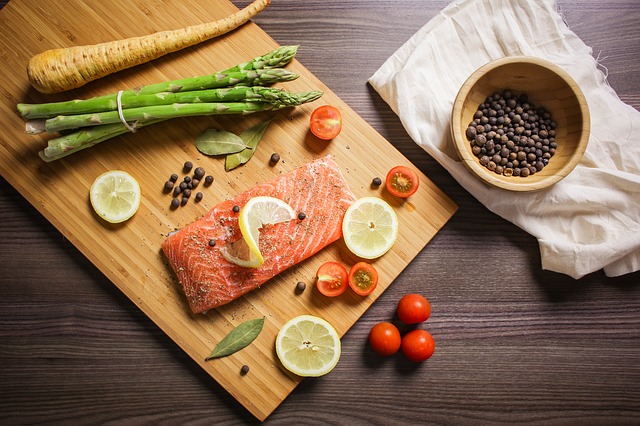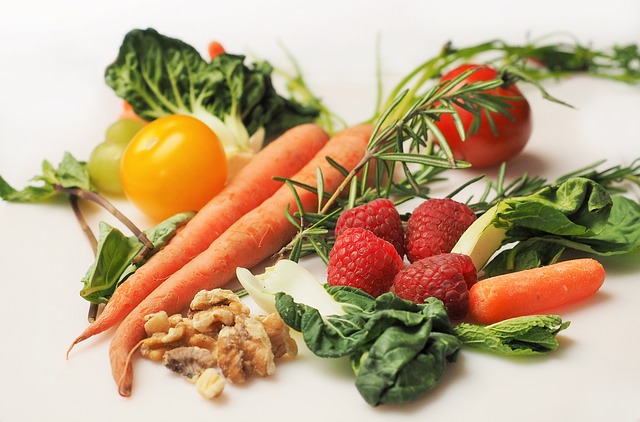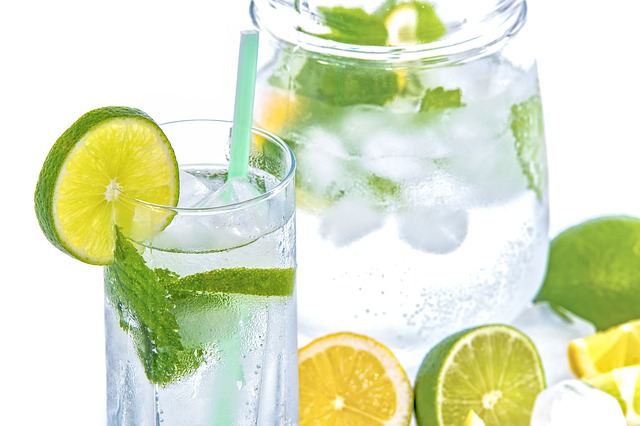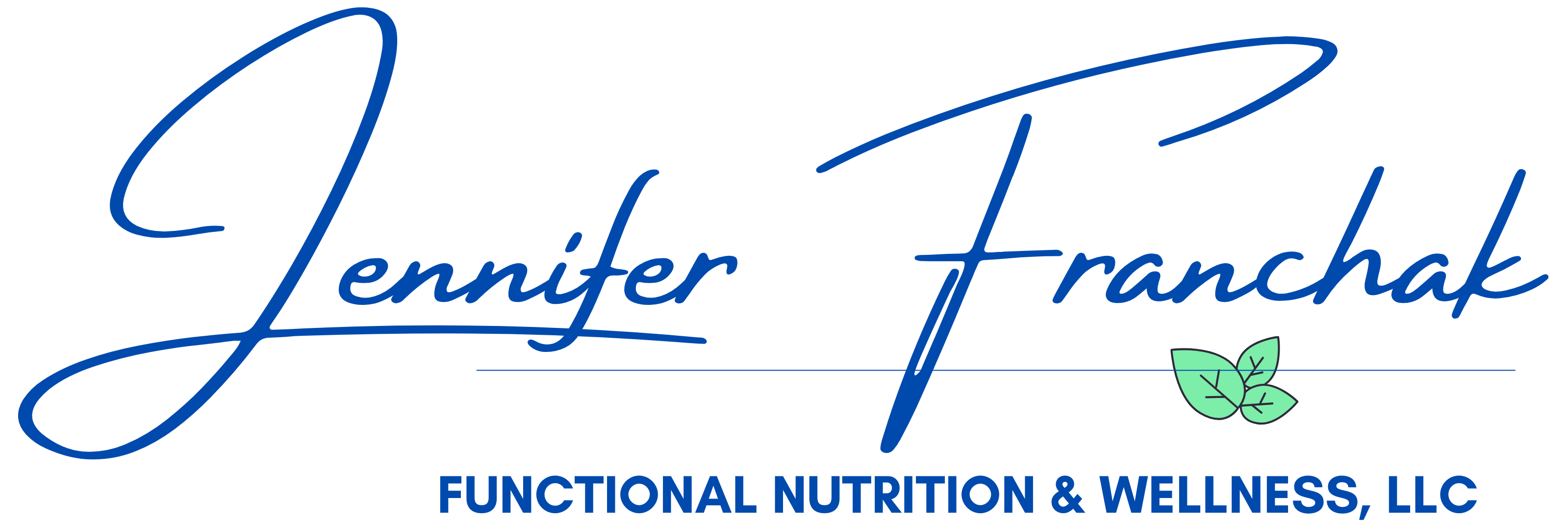 When I started breastfeeding my first daughter, I had no idea what I should be eating. I had read that I needed something like 300-500 extra calories per day, but calorie counting was the last thing I felt like doing as an overwhelmed new mom.
When I started breastfeeding my first daughter, I had no idea what I should be eating. I had read that I needed something like 300-500 extra calories per day, but calorie counting was the last thing I felt like doing as an overwhelmed new mom.
Am I doing this right?
I was so worried that the baby wasn’t getting enough, or that the quality of my milk wasn’t enough, but I really didn’t know what I should be eating to ensure these things. However, I kept reading over and over that the baby will get what it needs nutritionally from its mother’s milk. While this is absolutely true, I had forgotten something important. Me!
You need nutrients too!
I wasn’t really thinking about the fact that I needed extra nutrients, since my body was recovering from childbirth and working hard to produce breast milk. The baby was doing great and getting fantastic nutrition, but I was not.
The publication, Nutrition During Lactation points out that “If the mother ingests lower amounts of a nutrient than she requires to meet her own needs and to cover nutrients secreted in the milk, she can draw upon body stores.1

Getting the right minerals, vitamins and nutrients is a big game changer
Getting the right minerals, vitamins and nutrients while breastfeeding and during postpartum is a big game changer in terms of your health, recovery, and the quality of the breast milk that you produce. Unfortunately, many new moms come out of pregnancy nutritionally depleted.
Yet, our bodies need to have the energy to heal, lactate and re-balance hormones, which comes from proper nutrition. Additionally, other factors, such as lack of sleep, stress, trying to lose weight, and exercise, will leave us even more depleted if we are not getting the right nutrients.
Eat a wide variety of whole foods
According to the Institute of Medicine (US) “The extra nutrient intake needed to cover exclusive breastfeeding for 4 to 6 months is substantially greater than that needed to cover the entire pregnancy. It is appropriate to encourage intake of a wide assortment of nutritious foods during lactation to help meet a woman’s increased nutrient needs.”2
The Institute of Medicine (US) also notes that “During lactation, the nutrients that are most likely to be consumed in lower than recommended amounts are calcium, magnesium, zinc, vitamin B6, and folate. 2
Ok. So we know we need to eat enough and eat healthy when we are lactating, but what nutrients do we need?
Essential Breastfeeding Nutrients

- Protein, fats, carbohydrate: These macronutrients are essential in any diet. Quality of these nutrients are of vital importance – especially when you are breastfeeding.
The type of fats in your breast milk are affected by the types of fats you eat, but regardless of how much fat you eat, the amount of fat in your milk stays the same. Your baby will get the calories he needs in the form that his body can most easily turn them into growth. If your diet is heavy in highly-processed fats, the greater consideration than the type of fat in your breast milk is whether those highly- processed foods are allowing your body to be as effective as it can be.3
We need to make sure that we are eating the highest quality, least processed forms of each macronutrient.
This means you need to look for: local, pastured, organic, and wild-caught.

Studies show that animal products that come from animals which are raised in humane conditions, allowed to go outside, and eat what they are biologically intended to eat provide us with more nutritious products, and contain more Omega 3 fatty acids than animals kept in huge “factory farms,” which are unsanitary and full of illness. You can read more about this here.
Foods to eat from this category include:
Protein and Fats: Eggs, beef, poultry, dairy (especially probiotic rich fermented dairy, like kefir, and yogurt) fatty fish (sardines, salmon, mackeral), butter, olive oil, coconut oil, lard (well-sourced)
Complex Carbohydrates: Potatoes, sweet potatoes, squash, quinoa, steel cut oats, buckwheat, bulgar, einkorn, emmer, whole wheat
Essential breastfeeding nutrients from these foods include:
- B Vitamins (essential for energy)
- Iron (helps to prevent anemia)
- Vitamin A (eyesight, growth and tissue healing, and healthy skin)
- Vitamin D (immune function, bone health)
- Omega 3 fatty acids (brain health, sleep, skin, metabolism)
Additional Nutrients
Eating plenty of fresh vegetables, fruits and nuts, as well as complex carbohydrates, is extremely important as well. If possible, please try to eat organic fruits and vegetables, since they are not sprayed with harmful toxic pesticides.

Also, organically grown produce tends to be grown in soil that is rich in minerals and nutrients, which, in turn, gives produce with a higher nutritional quality. If you are on a tight budget and cannot afford to buy everything organic, check out this helpful list from the Environmental Working Group (EWG), which shows which fruits and vegetables are the most highly sprayed, and which contain less pesticides.
Try to include green foods at every meal. I like to include about two handfuls of dark, leafy greens with each meal. You can also put them into smoothies, along with some berries, which are high in antioxidants.
Essential breastfeeding nutrients from these foods include:
- Calcium (bones and teeth)
- Magnesium (bone health, bowel function, energy, stress reduction)
- Zinc (immune health, wound healing, stress reduction, metabolism)
Water
I know you’ve heard this before, but please drink plenty of water! Try to get at least 12 (8oz) glasses of water per day while breastfeeding. Drinking enough water will not only help with breastmilk production, but it will help to flush toxins out of your body, give you energy, and help with weight-loss. Clean water is a must! If you live in a city or do not feel confident in the quality of water that you have, consider getting a water filter.

To round out your Nutrition
Although the bulk of our nutrients should come from eating a large variety of high-quality foods, it is a good idea to also include a whole-food based multi-vitamin into your routine. I like Whole Chapter Organic’s Perfect Postnatal vitamins, as they are sourced from foods and the highest quality that I have found. Also, taking a quality fish oil is also highly beneficial as an additional source of Vitamin A, and Omega 3 fatty acids.
Avoid Overwhelm
Try to start incorporating a few of these foods into your diet each day. Every week you can slowly incorporate more whole food choices, while reducing your consumption of processed foods. Don’t feel like you need to do it all at once! Every day is a new day and a new chance to take of your body.

Works Cited
- Institute of Medicine. 1991. Nutrition During Lactation. pg 218. Washington, DC: The National Academies Press. https://doi.org/10.17226/1577.
- Institute of Medicine (US) Committee on Nutritional Status During Pregnancy and Lactation. Nutrition Services in Perinatal Care: Second Edition. Washington (DC): National Academies Press (US); 1992. 2, Nutritional Concerns of Women in the Preconceptional, Prenatal, and Postpartum Periods. Available from: https://www.ncbi.nlm.nih.gov/books/NBK235913/http:
- https://www.naturalchildmagazine.com/1204/breastfed-matters.html

Leave a Reply